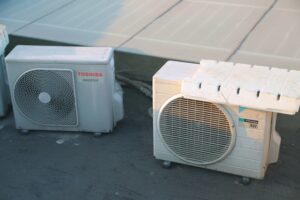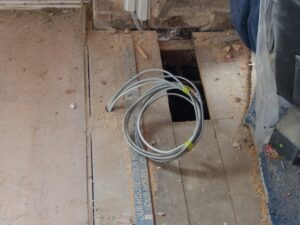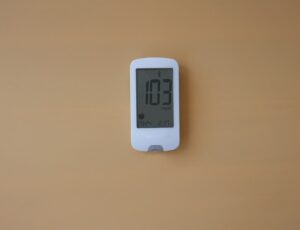Is your AC leaking water?
It’s a common problem that many homeowners encounter, and it could lead to more serious issues if not addressed promptly.
Repair costs for an AC leaking water can range from $75 to $1,600, depending on the cause and extent of the damage.
Being informed about these costs can help you budget effectively and avoid unexpected expenses.
At Excel Mechanical, we specialize in HVAC and plumbing solutions tailored to your needs and budget. Whether it’s a clogged condensate drain line or a damaged component, our experienced professionals ensure your system is repaired efficiently and affordably.
With our commitment to quality and reliability, we’re a trusted choice for both residential and commercial systems.
Choosing the right service provider can save you time and money. Excel Mechanical is dedicated to delivering the best possible solutions for your home or business.
By prioritizing quality and efficiency, we work to give you peace of mind and ensure your AC system operates smoothly.
In this blog, you will learn:
- What causes AC water leaks and how to spot them early
- How much AC water leak repairs typically cost
- Preventative tips to avoid future water leakage issues
Let’s dive into the details and explore how to handle AC water leaks effectively.
Understanding AC Water Leakage
Have you noticed water pooling near your AC unit or heard strange dripping sounds?
Water leakage in an AC system is more than just an inconvenience—it could signal underlying issues that, if ignored, might lead to costly damage.
Understanding the causes, signs, and potential risks can help you address the problem early.
Causes of Water Leakage
What makes an AC system start leaking water?
Several factors could be to blame, including:
- Clogged Condensate Drain Line: Dirt, dust, or mold can block the drain line, preventing water from flowing out properly. This is one of the most common causes of AC leaks.
- Rusted or Damaged Drain Pan: In older units, the drain pan can corrode over time, leading to leaks as it fails to catch condensation.
- Low Refrigerant Levels: Have you noticed that your AC isn’t cooling effectively? Low refrigerant can cause the evaporator coil to freeze. When it melts, excess water can overflow the drain pan.
Proper maintenance, like regular cleaning and inspections, can prevent many of these issues. For example, unclogging a drain line early could save you from expensive water damage later.
Signs of Water Leakage
How can you tell if your AC is leaking water?
Spotting the signs early can prevent bigger problems:
- Pooling Water: If you see water collecting around the indoor unit, it’s a clear sign of drainage trouble.
- Increased Humidity: Does your home feel unusually damp? A leaking AC can disrupt its ability to regulate humidity, leaving your space feeling sticky.
- Dripping or Gurgling Sounds: Strange noises might mean water is struggling to flow through the system properly.
- Musty Odors: Mold thrives in damp conditions, and a water leak could lead to unpleasant smells from mold or mildew buildup.
If you notice any of these signs, don’t wait—addressing them promptly can save you from bigger repairs and higher bills.
Potential Damages from Unaddressed Leaks
What happens if you ignore a water leak?
Unfortunately, the risks are significant:
- Water Damage: Persistent leaks can stain ceilings, warp floors, and even cause structural damage to your home or business.
- Mold and Mildew Growth: Excess moisture creates a perfect breeding ground for mold, which can harm your health, especially if anyone in your home has allergies or respiratory conditions.
- Reduced AC Efficiency: Leaks force your system to work harder, leading to higher energy bills and more frequent breakdowns.
For example, if a clogged drain line is left unchecked, water can overflow and damage your floors, costing you hundreds—or even thousands—of dollars in repairs.
Working with experienced professionals, like the team at Excel Mechanical, can prevent these outcomes and keep your AC system running smoothly.
Average Cost of Repairing Water Leaks
How much should you expect to pay for fixing an AC water leak?
Repair costs can vary widely, depending on the root cause and the extent of the damage.
Understanding what factors influence these costs and what price ranges are typical can help you prepare financially and make informed decisions.
Cost Factors
Why do some AC water leak repairs cost $75 while others run up to $1,600?
Several factors influence the total price:
- Type of Unit and Complexity: Central air systems and split units often involve more labor-intensive repairs compared to simpler window units, which can increase costs.
- Age of the System: Older units are more prone to corrosion and wear, which might require replacing multiple parts, like drain pans or condensate pumps.
- Severity of the Leak: A simple clogged drain line might cost less than $100 to fix, but a damaged evaporator coil or refrigerant issue could push the price much higher.
- Labor Rates and Region: Labor costs vary by location, so repairs might be pricier in certain areas. For example, urban areas often have higher labor rates than rural ones.
Have you ever wondered how materials like tubing, pumps, or drain pans affect repair costs?
Replacement parts can significantly influence the total price, especially for more complex systems.
Price Range for Common Repairs
The typical cost to fix a water leak in an air conditioning system ranges from $75 to $600.
Simpler repairs, such as unclogging a drain line, might fall on the lower end. More extensive issues, like repairing or replacing a condensate pump, could be more expensive.
Regular maintenance can prevent future leaks and reduce potential repair costs.
Understanding these aspects can help you manage and potentially lower repair costs, allowing you to keep your AC functioning efficiently.
Did you know regular maintenance can save you money in the long run?
By scheduling routine check-ups, you can catch small issues—like dirt buildup or clogged lines—before they turn into expensive repairs.
Investing in preventative care reduces the likelihood of costly breakdowns and ensures your system runs efficiently year-round.
Repair Process
What does it take to fix an AC water leak?
The repair process isn’t just about stopping the leak—it’s about addressing the root cause to prevent future issues.
A thorough evaluation, professional diagnosis, and the decision between repair or replacement are all key steps in resolving the problem effectively.
Diagnosis of the Problem
How do you pinpoint the cause of an AC water leak?
The first step is a professional diagnosis by an experienced HVAC technician. They’ll carefully inspect your unit to identify the root cause of the leak.
Here’s what a technician typically checks:
- Condensate Drain Line: Is it clogged with dirt or mold?
- Drain Pan: Is it cracked, rusted, or unable to hold water?
- Evaporator Coil: Is it freezing due to low refrigerant levels and melting into excess water?
- Installation Issues: Is the unit slanted or improperly installed, causing drainage problems?
For Example: If you’re noticing water pooling around your indoor unit, it could be as simple as a clogged drain line—or as complex as a damaged pump. A professional diagnosis ensures the issue is accurately identified and resolved.
At Excel Mechanical, we use advanced tools and techniques to assess your system thoroughly.
Our skilled technicians aim to find cost-effective solutions tailored to your unit and budget.
Repair Vs. Replacement
After identifying the problem, consider whether to repair or replace your AC unit.
If the damage is minor, such as a blocked drain or small leak, a repair is typically the most cost-effective and efficient solution.
Repairs generally range from $75 to $600, but if multiple parts are damaged or the system is old, replacement might be necessary.
Replacing a unit is usually more expensive but can eliminate ongoing repair costs.
Selection of a Service Provider
How do you ensure that your AC water leak repair is handled professionally and effectively?
Choosing the right service provider is crucial for getting reliable results, saving money, and avoiding future issues.
By focusing on the qualifications of technicians and the reputation of the company, you can feel confident in your choice.
Qualifications of Technicians
Have you ever wondered if your technician has the expertise to handle your specific AC system?
Certified technicians are trained to handle all aspects of HVAC repair, from diagnosing leaks to replacing components safely and efficiently.
What should you look for?
A qualified technician should:
- Hold Relevant Certifications: Certifications, such as NATE (North American Technician Excellence), demonstrate advanced knowledge and skills.
- Have Experience with Different Systems: From split systems to central units, familiarity with various models ensures the technician can adapt to your needs.
- Stay Updated: Continuous training on new HVAC technologies and tools is a sign of a reliable professional.
How to Choose a Reputable Company
Selecting a reputable company is crucial for reliable service. Start by checking reviews and ratings from previous customers.
Look for companies with a history of satisfied clients and a strong track record. Ensure they have proper licenses and insurance for added peace of mind.
It’s smart to ask for a detailed estimate before agreeing to any work. This helps avoid any hidden costs.
With Excel Mechanical, you’re guaranteed transparent pricing, licensed professionals, and a commitment to exceptional service. Our dedication to quality makes us a trusted choice for HVAC repairs, ensuring your AC system runs smoothly for years to come.
Preventative Measures
Wouldn’t it be better to avoid costly AC repairs altogether?
Taking proactive steps to care for your AC system can help prevent water leaks and keep it running efficiently year-round.
Routine maintenance and regular inspections are key to avoiding unexpected breakdowns and ensuring optimal performance.
Routine Maintenance Tips
How often do you take time to care for your AC system?
Simple maintenance tasks can go a long way in extending its lifespan and preventing leaks.
Here’s what you can do:
- Clean or Replace Air Filters Regularly: Dirty filters restrict airflow, causing strain on the system. Replace filters monthly during heavy use to keep things running smoothly.
- Inspect and Clean Coils and Fins: Dust and debris buildup on the evaporator and condenser coils reduce efficiency and can lead to freezing, which causes leaks.
- Clear the Drain Lines: Blocked condensate drain lines are a leading cause of water leakage. Flush them with a mixture of water and vinegar periodically to prevent clogs.
- Keep the Unit’s Surroundings Clear: Are plants or debris obstructing airflow? Ensure there’s enough clearance around the outdoor unit to improve its efficiency.
Imagine discovering a clogged drain line during routine maintenance. A quick flush might cost you $10 and save you hundreds in water damage repairs.
Importance of Regular Inspections
Regular inspections by a professional can spot potential issues before they lead to major problems. These inspections often involve checking refrigerant levels, ensuring that there are no leaks, and verifying that the system is running smoothly.
A professional can also assess the condition of the compressors and electrical connections to confirm they are operating safely.
Seasonal check-ups can catch issues early, saving you time and money in the long run.
Frequently Asked Questions
Still wondering about the costs and fixes for AC water leaks?
Let’s answer some of the most common questions to give you a clearer understanding and help you make informed decisions.
What are the common causes of car AC leaks and the estimated repair costs?
Car AC leaks are often caused by issues with the hoses, seals, or the compressor. Repair costs for these issues can range from $150 to $500, depending on parts and labor. Regular maintenance can help prevent these leaks from happening in the first place.
What is the typical cost to repair a Freon leak in a vehicle?
Repairing a Freon leak in a car typically costs between $150 and $400. The price depends on the severity of the leak and what components are involved. Addressing Freon leaks quickly is crucial to avoid further system damage.
How much should I expect to pay for a split AC system water leak repair?
Water leaks in split AC systems usually stem from clogged drain pipes or problems with the condensate pump. Fixing these issues can cost anywhere from $75 to $300, depending on the complexity of the repair.
What is the price range for conducting an AC leak test in a car?
Performing a leak test for your car’s AC system ranges from $75 to $150. This test helps pinpoint the source of any leakage and is a crucial step in ensuring your AC system operates efficiently and effectively.
Can a leaking AC condensate drain be repaired, and what is the cost range?
Yes, a leaking AC condensate drain can be repaired. The repair can typically range from $100 to $250. Regular checks of the drain line can prevent leaks and potential water damage to other parts of the system.
Is repairing a central AC unit water leak costly, and what factors influence the price?
Repairing a central AC unit water leak can cost between $300 and $600, with factors like the leak’s location, system age, and labor rates influencing the final price. Addressing the issue quickly can prevent further damage to your system and your home.




